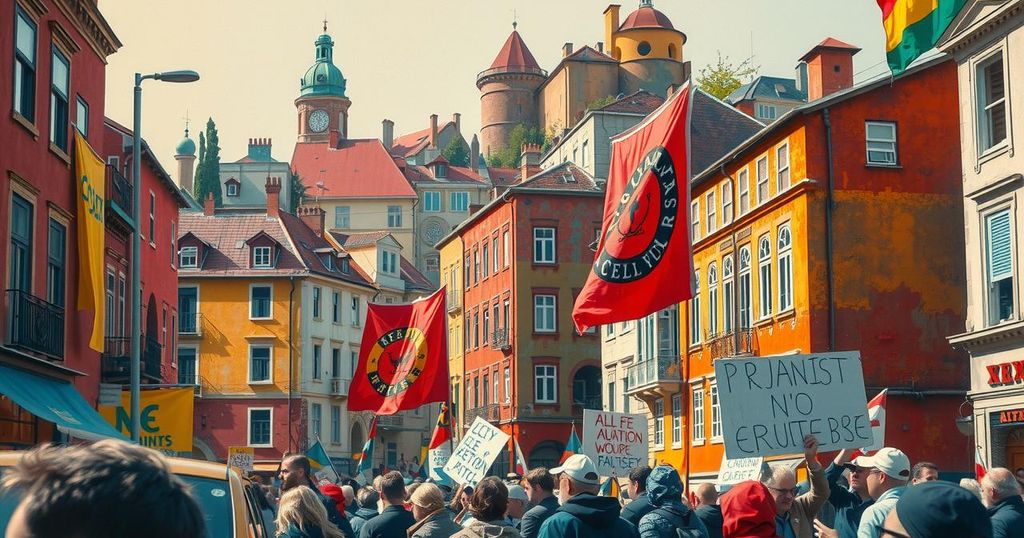Malawi’s Economic Crisis Triggers Protests Ahead of Elections

Malawi faces widespread protests due to soaring prices and stark economic challenges, with inflation hitting 30%. Demonstrations, led by vendors, reveal frustration over the cost of living, especially food prices. The government has banned imports to boost local production; however, critics question the effectiveness of these measures. President Chakwera’s re-election prospects are now under immense pressure amid this turmoil.
Malawi is undergoing significant unrest due to soaring prices, particularly in the lead-up to the September elections. Currently, the nation confronts its most severe economic crisis in decades, marked by a staggering year-on-year inflation rate of 30% as of February. Large protests, led by figures such as Steve Magombo of the vendors’ association, have erupted, attracting approximately 5,000 participants in a demonstration in Lilongwe’s Tsoka market, which represents the largest public outcry in recent years.
Protests have spread to at least four other cities, highlighting widespread dissatisfaction among the populace, where nearly 75% of Malawi’s 21 million residents live in extreme poverty. Food prices have been particularly affected, with inflation on essential items like maize peaking at 38.5%, severely impacting the cost of living. The price of a 50kg maize bag has soared to 110,000 kwacha ($63), significantly surpassing the minimum monthly wage, which is $52, or even just $26 for domestic workers.
James Woods, a UK-based policy expert, stated, “For a net-importing country, the collapse of the kwacha has been catastrophic, fuelling import costs and further stoking inflation in a vicious cycle.” Furthermore, the kwacha has lost over half its value since 2022 due to multiple currency devaluations. This depreciation has led to businesses grappling with foreign currency shortages, disrupting imports and supply chains.
In response to the crisis, the government has implemented a ban on certain imports, including Irish potatoes and maize flour, to stimulate local production. However, critics assert that the government lacks a coherent strategy to stabilize the economy. Gift Trapence, leader of the Human Rights Defenders Coalition, remarked, “The government seems to have no clue on how to bring the economy back on track.”
Facing these mounting challenges, President Lazarus Chakwera, at 69 years old and elected with 58% of the vote in 2020, is preparing for a tough re-election campaign against former president Peter Mutharika, aged 85. The deteriorating economic situation has intensified pressure on the government to act decisively before the upcoming elections.
In conclusion, Malawi is experiencing significant unrest driven by escalating prices, particularly as the September elections approach. With inflation rates striking at alarming levels and critical food prices doubling, public protests reflect deep dissatisfaction among a population largely living in poverty. The government’s attempts to combat the crisis with import bans and local production incentives are viewed as inadequate, highlighting the urgent need for a comprehensive economic strategy. As the elections draw near, citizens are looking to their leaders for tangible solutions.
Original Source: newscentral.africa








